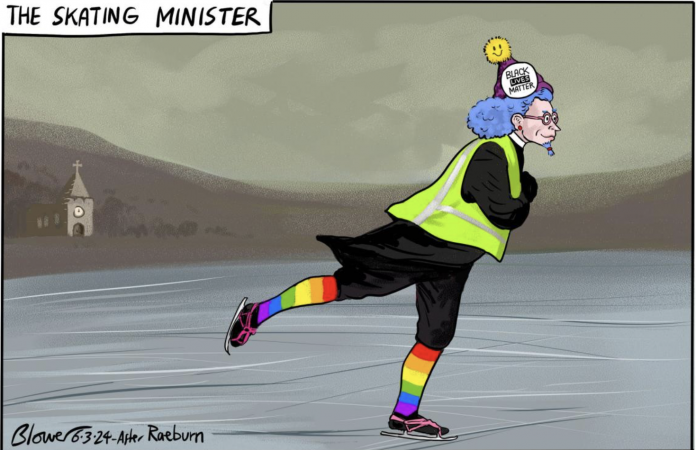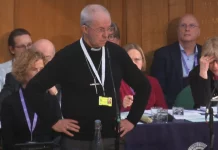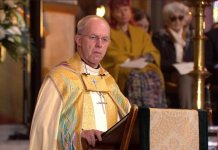For an organisation that prides itself on bringing the Good News to people, you can’t move for terrible headlines about the Church of England; from the Diocese of Birmingham’s hunt for a “deconstructing whiteness” officer, to the Church Commissioners’ report calling for the fund of £100 million earmarked to atone for historic slavery to be increased to £1 billion.
Incidentally, the report also calls for the CofE to apologise for “seeking to destroy diverse African traditional religious belief systems” and replace them with Christianity. In a crowded field, this might be the most insulting part of all. Each year, thousands of Nigerian Christians are murdered by groups like Boko Haram for a faith that the report apparently believes wasn’t worth spreading.
Some, who mistakenly view the Church of England as a unified, coherent body – may therefore delight in the shrinking congregations and generally low morale that defines it nowadays. I delight in none of these things, because I love the CofE.
Look more closely though, and you’ll realise that there is not one Church of England – but two. There’s the Reverend Dr Jekyll, the one who performs invaluable work on the ground; burying the dead, visiting the sick, educating more than a quarter of our nation’s schoolchildren to a much higher standard than the state normally achieves.
This Church manages the food banks, playgroups, dementia cafés and loneliness workshops. It does its best to protect some of the most valuable parts of our nation’s physical and cultural heritage. Its parish priests do this for little money; its thousands of volunteers do it for none at all.
Then there is the other Church of England – the Reverend Mr Hyde. This is a church of unaccountable committees and upward failure, resulting in perhaps the least impressive bench of bishops since Pope Gregory first observed “non angli, sed angeli”. Members of this caste speak in identikit managerial jargon, which from an institution that has provided some of the most beautiful cadences and turns of phrase in the English language is depressing.
Even more depressing is the fact that nothing they say or do gives the impression they are running a church at all, rather than an NHS trust or local council. The former Post Office CEO Paula Vennells (who, lest we forget, was reported to have been Justin Welby’s choice for bishop of London) embodies this second Church: an individual with no obvious link to its parishes or grassroots work yet catapulted into its upper echelons.
She symbolises a wider, more striking issue: Mr Hyde’s contempt for the ordinary people in the pew. In Galatians, St Paul talks about “false brethren” who posed as members of the church in order to bring it “into bondage”. I always wondered who he meant. Wonder no more.
Read it all in The Telegraph










